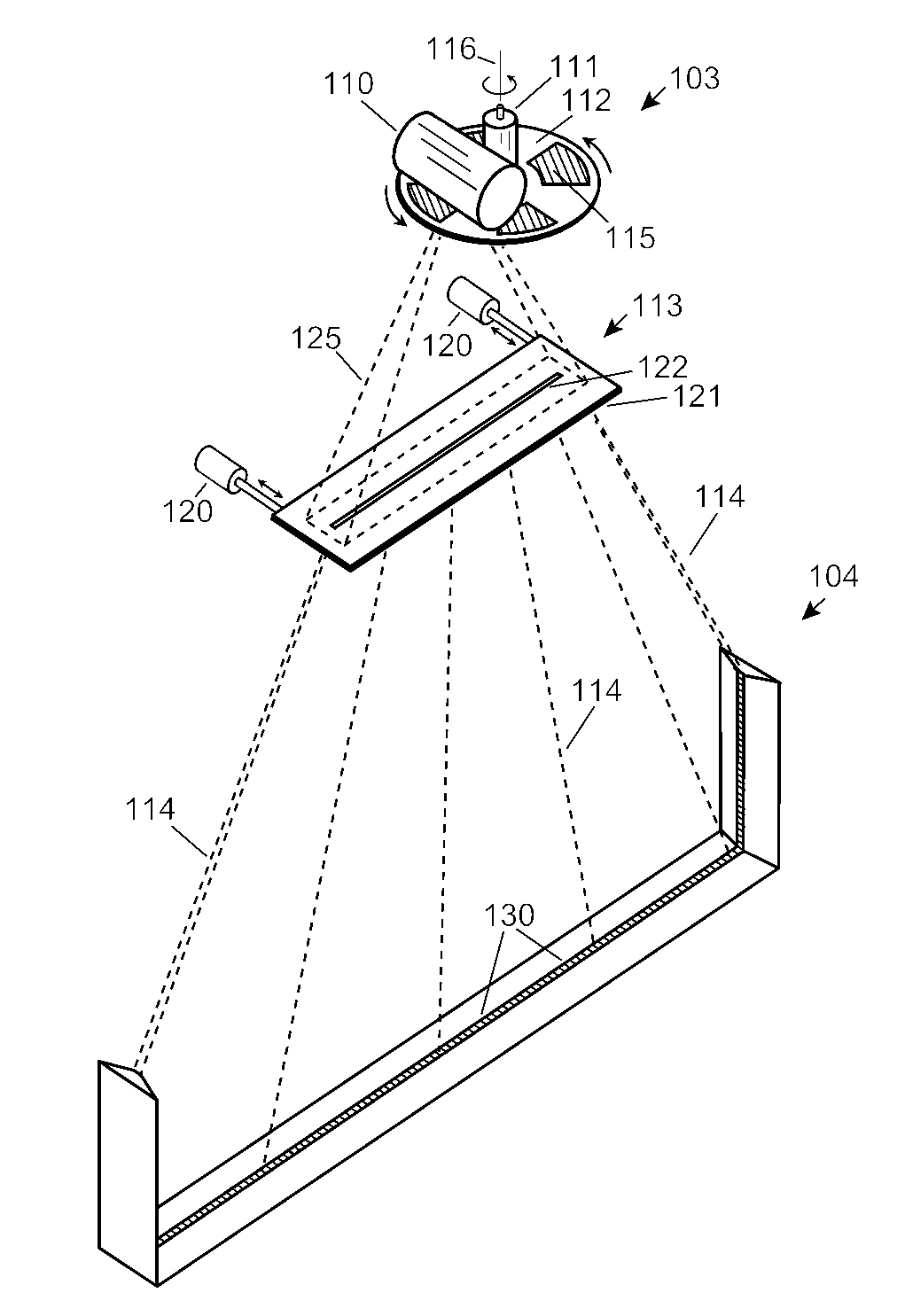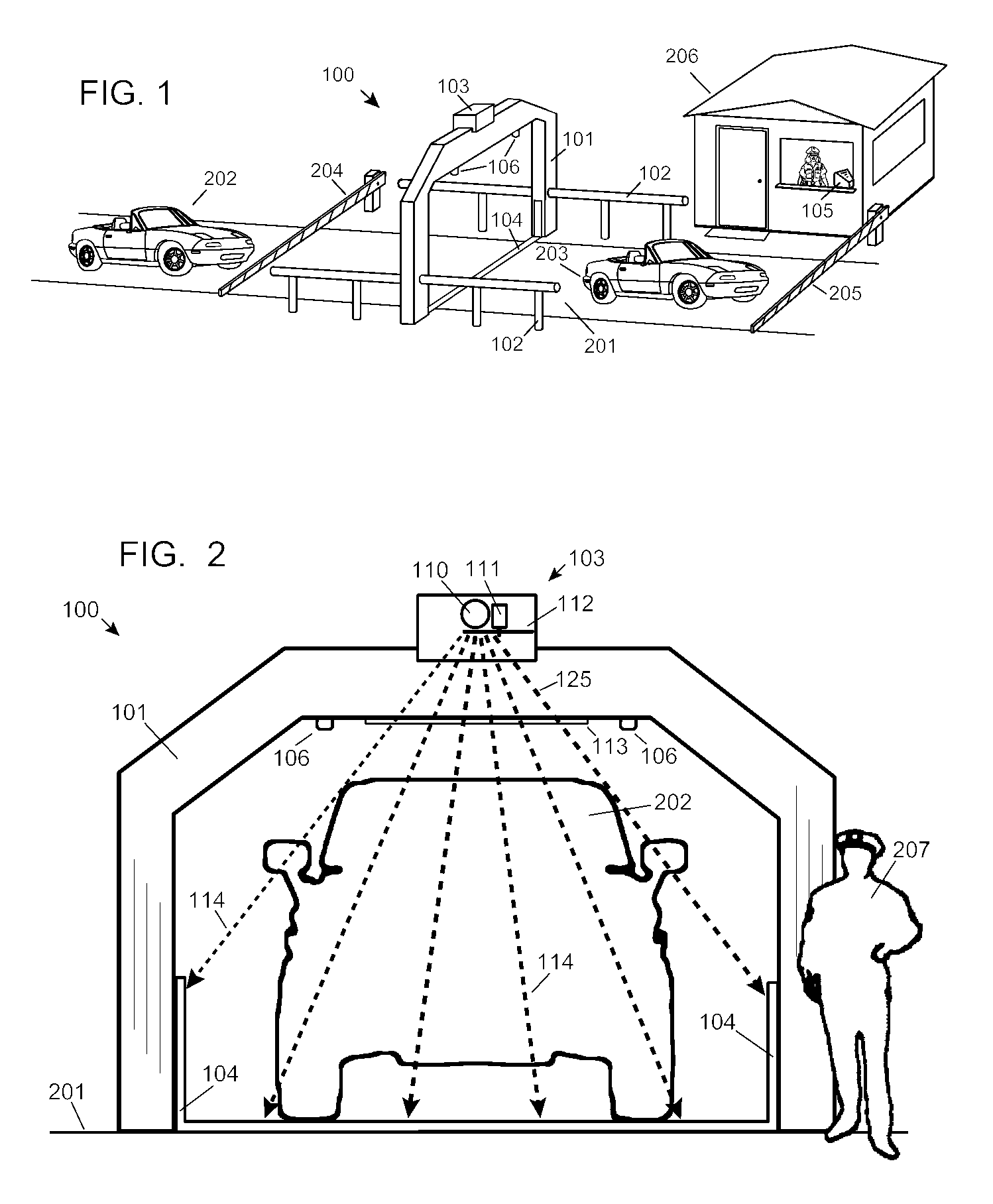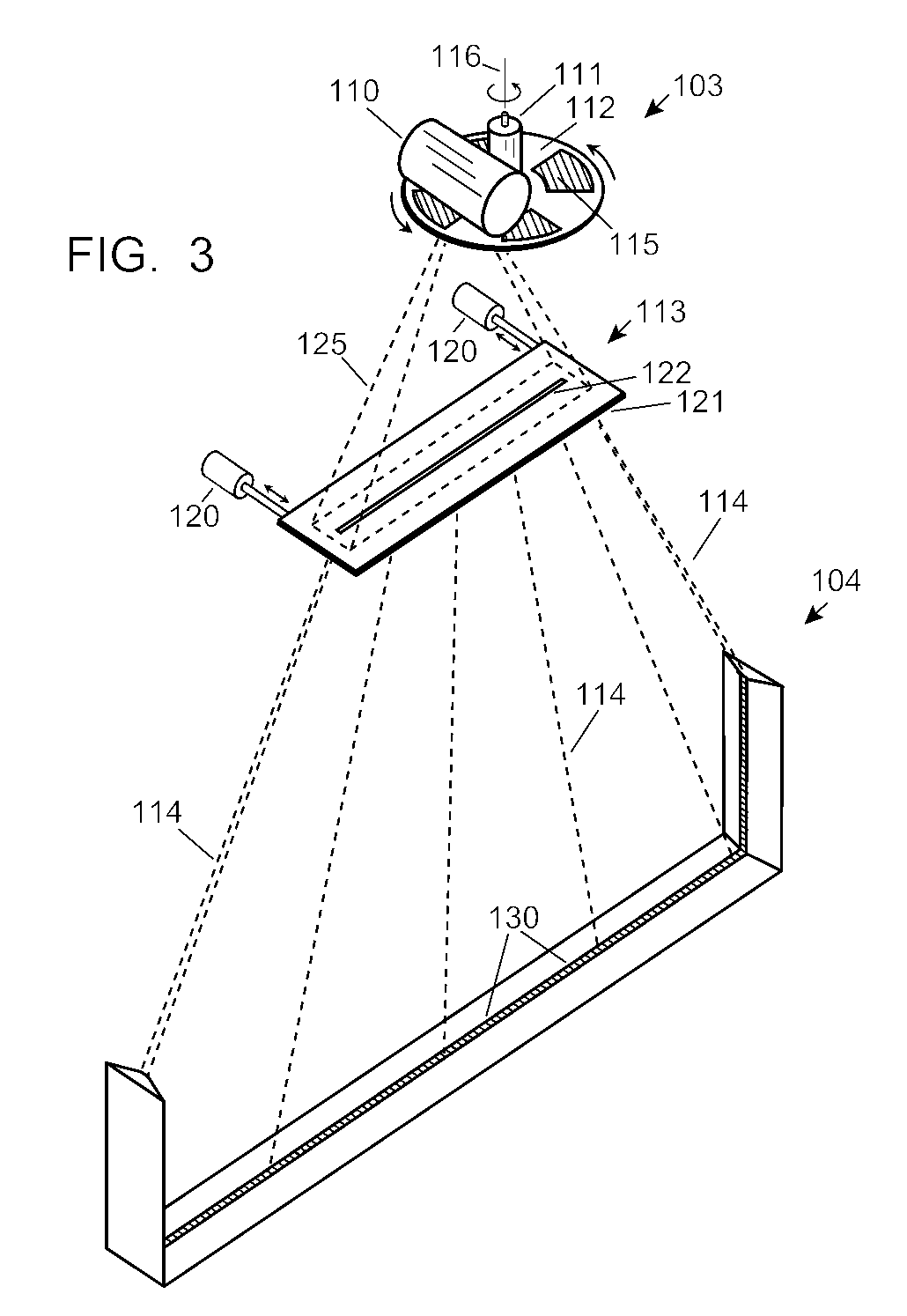Automobile Scanning System
a scanning system and automobile technology, applied in the direction of material analysis, material analysis using wave/particle radiation, instruments, etc., can solve the problems of inability to visually detect persons and contraband hidden in the dashboard or within the seats, time-consuming and often ineffective visual inspection of automobiles, and prior art systems cannot readily distinguish organic matter, etc., to achieve uniform radiation exposure and facilitate the inspection of automobiles
- Summary
- Abstract
- Description
- Claims
- Application Information
AI Technical Summary
Benefits of technology
Problems solved by technology
Method used
Image
Examples
Embodiment Construction
[0016]FIG. 1 shows the overall general operation of the Invention. The scanning apparatus 100 is contained within an archway 101, about ten feet high and ten feet wide, spanning across the roadway 201. The automobile being examined 202 approaches the scanning apparatus and is stopped by a first gate-arm 204. The first gate-arm 204 is raised, allowing the automobile 202 to slowly drive through the archway 101 until stopped by the second gate-arm 205, at a position 203 after the archway 101. An x-ray assembly 103 is mounted at the top of the archway 101, directing a fan beam of x-rays downward to a linear array detector assembly 104, resting on the roadway 201. Automobile motion sensors 106 provide an electronic output of the speed of the automobile 202, 203 as it passes through the archway 101. Support members 102 hold the archway 101 upright and prevent persons on foot from entering the x-ray examination area. The x-ray image data generated by the scanning apparatus 101 is received ...
PUM
 Login to View More
Login to View More Abstract
Description
Claims
Application Information
 Login to View More
Login to View More - R&D
- Intellectual Property
- Life Sciences
- Materials
- Tech Scout
- Unparalleled Data Quality
- Higher Quality Content
- 60% Fewer Hallucinations
Browse by: Latest US Patents, China's latest patents, Technical Efficacy Thesaurus, Application Domain, Technology Topic, Popular Technical Reports.
© 2025 PatSnap. All rights reserved.Legal|Privacy policy|Modern Slavery Act Transparency Statement|Sitemap|About US| Contact US: help@patsnap.com



